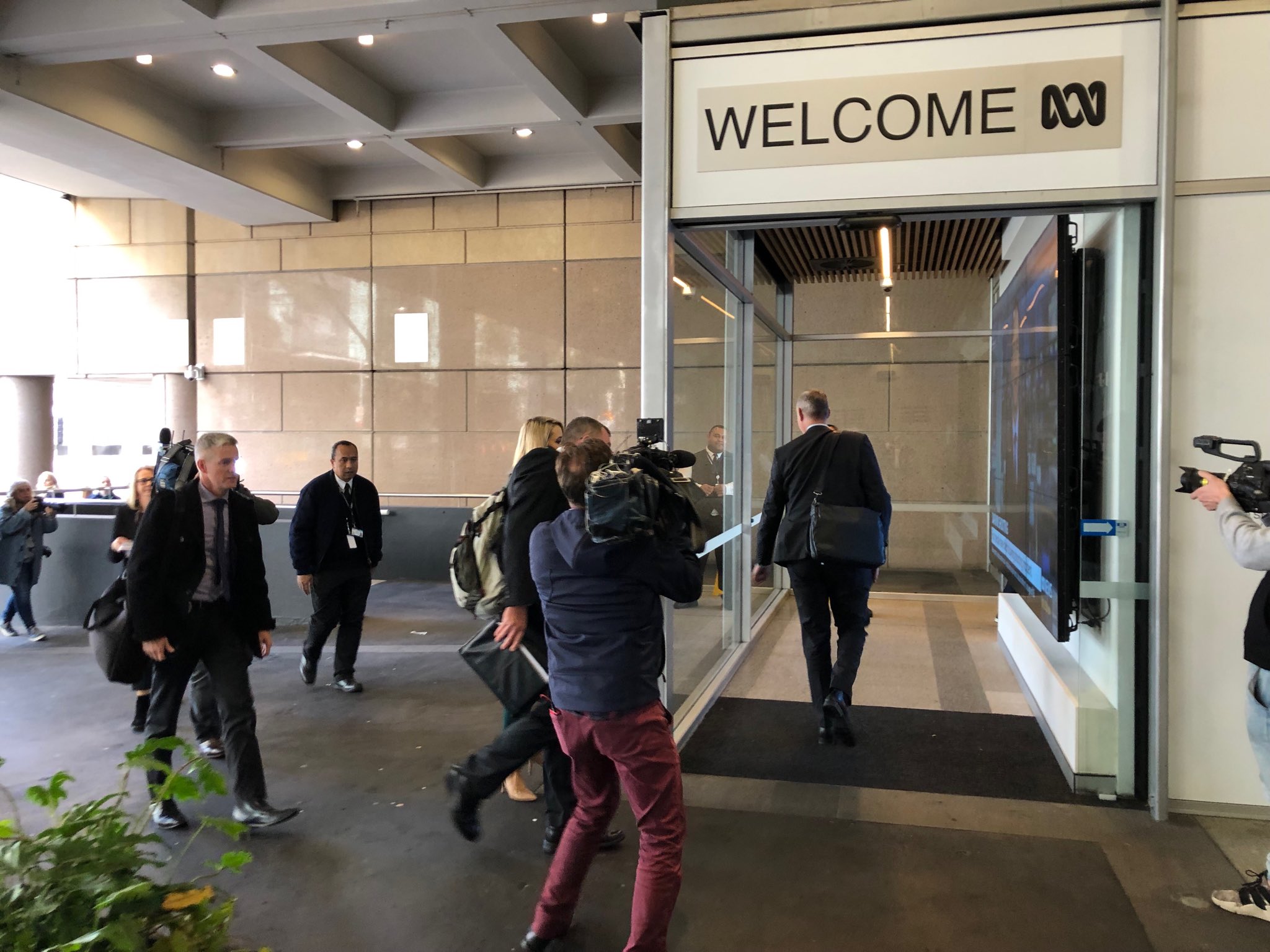AJF response to the Senate Environment & Communications References Committee: Press Freedom Inquiry
The Alliance for Journalists’ Freedom (AJF) broadly welcomes the Senate Environment and Communications References Committee Press Freedom Inquiry recommendations.
Peter Greste, AJF Spokesperson and Director can be quoted as follows:
“We strongly welcome most of these recommendations. The committee’s acknowledgement of the importance of inverting the onus of proof with respect to public interest disclosures, for example, is a must for ensuring the public’s right to know is supported in our democracy.
“If we don’t introduce amendments like those outlined here and in the AJF’s White Paper, we’re going to weaken the very thing our government agencies seek to strengthen and protect: Australia’s democracy. It’s as simple as that.
“Our White Paper, released three weeks before the AFP raids, already plots the pathway to solve many of these issues.
“We need these changes implemented swiftly. Both the inquiry by the Parliamentary Joint Committee on Intelligence and Security which tabled its report last year and this Senate inquiry have acknowledged the seriousness and the urgency of this problem. We thank the committee for their considerations and look forward to continuing our work with government to implement the recommendations.”
Below we have provided brief commentary on each recommendation within AJF’s scope of work:
- Recommendation 1
2.46 The committee recommends that the Attorney‐Generalʹs Department, in its review of the secrecy provisions in Commonwealth law, should aim to build on the work of the Australian Law Reform Commission, by examining how the public interest in a free press and open and accountable government can be better balanced with protection for classified and sensitive government information.
AJF welcomes this recommendation of course, however, notes this work has already done by us, the Parliamentary Joint Committee for Intelligence and Security (PJCIS) and the ALRC, to name a few. See recommendation 2 in AJF’s White Paper, released three weeks before the AFP Raids on media. We and other relevant organisations stand ready to support this recommendation.
- Recommendation 2
2.87 The committee recommends that the Australian Government work with the Office of the Australian Information Commissioner to identify opportunities to promote a culture of transparency consistent with the objectives of the Freedom of Information Act 1982 among Ministers, Senior Executive Service and other Freedom of Information decision‐makers.
We support this recommendation and any attempt to make the FOI system more effective in achieving its aims.
- Recommendation 3
3.20 The committee recommends that the Attorney‐Generalʹs Department, in its review of the secrecy provisions in Commonwealth law, specifically examine whether the general secrecy of information offences within the Criminal Code Act 19951 should be amended to include an express harm requirement in line with the recommendation of the Australian Law Reform Commission.
We support this recommendation.
- Recommendation 5
3.40 The committee recommends that, if not already in place, the Australian Government, in consultation and collaboration with relevant stakeholders, develop guidance material to assist journalists and media organisations to comply with secrecy and unauthorised disclosure provisions in Commonwealth law, including the identification of classified information and information related to Special Intelligence Operations.
We support this recommendation as it directly aligns to our work towards establishing a National Working Group, which would bring security agencies and news organisations together to collaboratively establish such material, and relationships.
- Recommendation 6
3.51 The committee recommends that the Attorney‐Generalʹs Department, in its review of the secrecy provisions in Commonwealth law, specifically examine the best way to amend section 35P of the Australian Security Intelligence Organisation Act 1979, to protect journalists and media organisations who, in good faith, make public interest disclosures about Special Intelligence Operations. This amendment should ensure that information which is genuinely likely to result in serious harm is not publicly disclosed.
We support this recommendation.
- Recommendation 7
3.73 The committee recommends that the Australian Government gives consideration to amending the Criminal Code Act 1995,2 and other relevant Commonwealth legislation, to remove the evidential onus on journalist defendants to establish that an unauthorised disclosure is in the public interest.
We support this recommendation. It is directly aligned with our White Paper and is essential for ensuring the public’s right to know is appropriately protected in our democracy.
- Recommendation 8
3.77 The committee recommends that the Attorney‐Generalʹs Department, in its review of the secrecy provisions in Commonwealth law, specifically examine whether national security legislation, including the Australian Security Intelligence Organisation Act 1979,3 should require the prosecution to establish that a secrecy or unauthorised disclosure offence, including in relation to a Special Intelligence Operation, is not in the public interest.
We support this recommendation; it is directly aligned with our White Paper.
- Recommendation 9
3.87 The committee recommends that the Attorney‐General revoke the Direction issued on 19 September 2019 under subsection 8(1) of the Director of Public Prosecutions Act 1983, to respect and support the operational independence of the Australian Federal Police and the Commonwealth Director of Public Prosecutions.
We support this recommendation.
- Recommendation 10
62 The committee recommends that the Australian Government expedite long‐awaited reforms to the Public Interest Disclosure Act 2013 to address the recognised deficiencies within the existing legislative protections for disclosers.
We support this recommendation.
- Recommendation 11
4.81 The committee recommends that the Australian Government formulate options to strengthen and modernise shield provisions in the Evidence Act 1995, to set a high standard in relation to the harmonisation of national shield laws.
We support this recommendation; it is directly aligned with our White Paper.
- Recommendation 13
5.42 The committee recommends that the Australian Government introduce legislation to amend the Crimes Act 1914, and other Commonwealth legislation, to reflect the Direction issued on 8 August 2019 under section 37 of the Australian Federal Police Act 1979 by the Minister for Home Affairs. In particular, the amendments should ensure that, prior to the use of any intrusive or coercive power in relation to a journalist or media organisation, the importance of a free press in Australiaʹs democratic society and broader public interest factors are taken into account.
We support this recommendation.
- Recommendation 14
6.105 The committee recommends that the Australian Government urgently introduce legislation to implement Recommendation 2 (contested warrants) and Recommendations 3 to 5 of the Parliamentary Joint Committee on Intelligence and Securityʹs report into the impact of the exercise of law enforcement and intelligence powers on the freedom of the press.
We support this recommendation.
- Recommendation 15
6.107 The committee recommends that the Australian Government, in developing legislation to implement Recommendation 2 of the Parliamentary Joint Committee on Intelligence and Securityʹs report into the impact of the exercise of law enforcement and intelligence powers on the freedom of the press, provide for a review of the operation of the new arrangements.
We support this recommendation.
- Recommendation 16
7.75 The committee recommends that the Australian Government initiate an independent review of law enforcement and national security laws, with a view to reducing duplication and inconsistencies, as well as aligning those laws with Australiaʹs international human rights obligations, including the right to freedom of expression. In particular, this review should include express consideration of the definition of ʹnational securityʹ in national security laws and how the definition might be amended to conform more closely with international law and jurisprudence.
We support this recommendation in principle; however, it is broader than the remit of our work.
- Recommendation 17
7.78 The committee recommends that the Commonwealth Director of Public Prosecutions urgently reconsider, on strong public interest grounds, whether the prosecution of Mr David McBride should be continued.
We strongly support this recommendation.


